Check how peaceful our writing is. Children are describing their own lands – both weird and wonderful – that they have drawn earlier in the week.
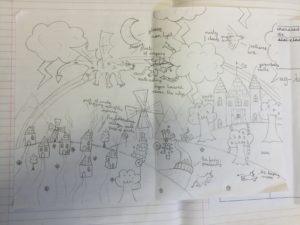
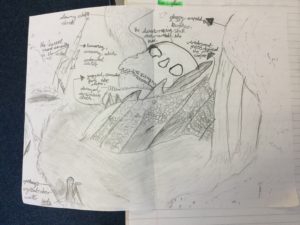
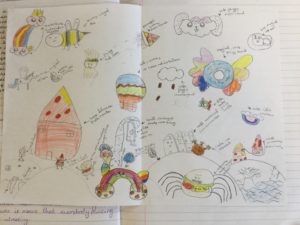
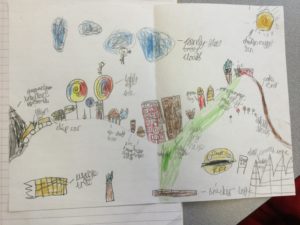
I’m looking forward to reading them!
Check how peaceful our writing is. Children are describing their own lands – both weird and wonderful – that they have drawn earlier in the week.




I’m looking forward to reading them!
Last week, Year 5 shared their topic learning with Year 2. We had half of their class visit us and bring their topic learning along with them.
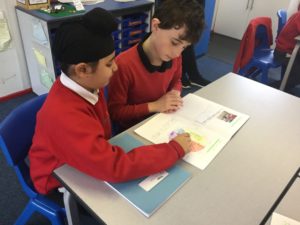
It was great to hear about their learning and find out how Time Travel linked to houses.
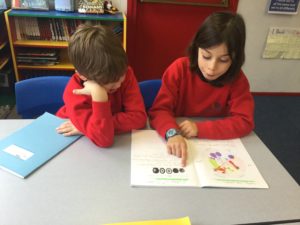
“I learnt they learnt about a special tool that was used to squirt water onto the fire and the fire spread because the houses were too close together,” said Gurnoor.
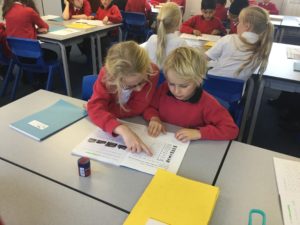
“It was fun because I was learning something new from the Y2s,” said Darien.
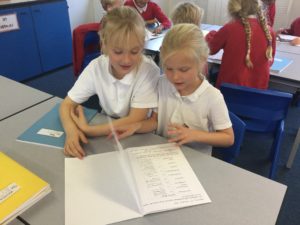
We also enjoyed sharing our own learning about Time Travel – Inventions.
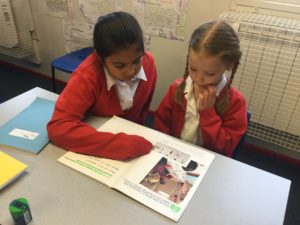
Eve said, “It was fun to see what the Year 2s had been learning about and discussing it.”
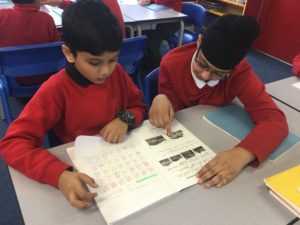
There was some fantastic discussion and it was clear that both classes had thoroughly enjoyed the last eight weeks of learning.
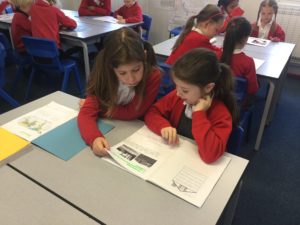
Zak said, “It was ok because it wasn’t too surprising because we learnt about houses in Year 2. My favourite thing was the Great Fire of London.”
| ‘co-’ and ‘re-’ | |||||
| This week’s spelling list is formed using words that start with either ‘co-’ or ‘re-’. Your task is to decide which prefix to use for each root word to make a new word that makes sense. Don’t forget your hyphen. If you don’t know what any of the words mean, find out! Is there a pattern? Can you show them in a creative way? Can you write them in your own sentences? | |||||
| co- | re- | ||||
| emerge | emphasise | enter | evaluate | examine | |
| operate | ordinate | own | pilot | star | |
Today, Year 5 put together their class jigsaw.

We focused our discussion on how this image represents how we are all the same and all different.
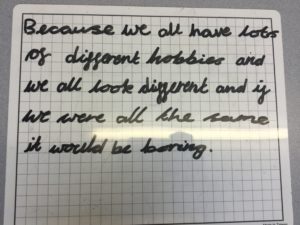
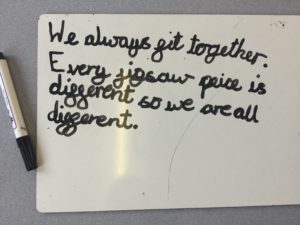
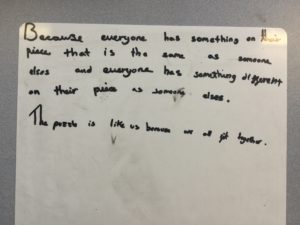
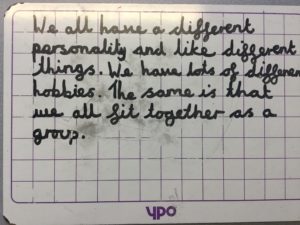
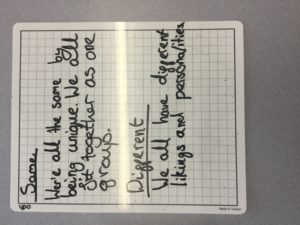

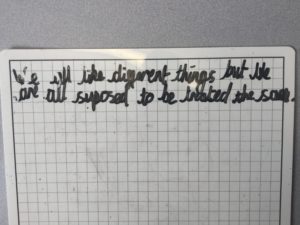
The jigsaw would be incomplete without each piece.
As part of our homework review, we thoroughly enjoyed a debate about whether the invention of flight has had a positive or negative impact on the world.
Year 5 came up with loads of amazing points and were able to discuss them maturely and fairly.
Here’s a summary of our discussion.
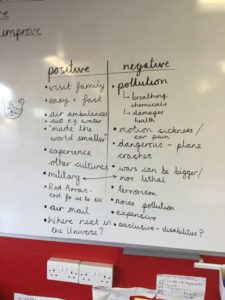
This week, we’ve been talking about how we can help stop bullying. We had a discussion in class about what this means.
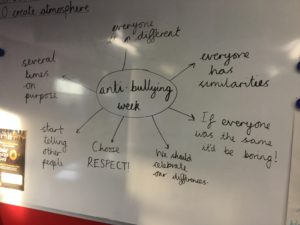
We have also enjoyed some very odd socks and this helped us understand how we’re all the same in some ways but completely different in others. We also each completed a jigsaw piece to represent who we are. They came together to form a Year 5 puzzle which was not complete without each individual and amazing piece.
Celebrating difference makes us more tolerant and accepting and choosing respect will help make bullying a thing of the past.
|
plurals |
|
This week’s activity is to write a setting description using as many plurals as you can. Use a variety of plural rules that you practised last week but make sure you spell all of them correctly! Challenge yourself to use powerful adjectives, personification, relative clauses or () and – – parenthesis. |
Be ready to share your story on Thursday 22 November.
This week’s invention theme has been Wilbur and Orville Wright’s brainchild: the aeroplane! We’ve enjoyed some science this week all about flight.
We started by making some paper aeroplanes. Plane 1 was the control, Plane 2 had one wing flap and Plane 3 had both flaps on its wings. We wanted to measure how far each plane travelled across the classroom.
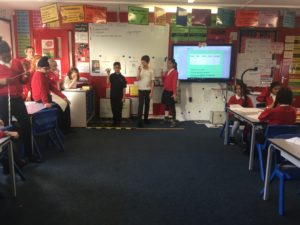
In our groups, we each had roles and had to work cooperatively.
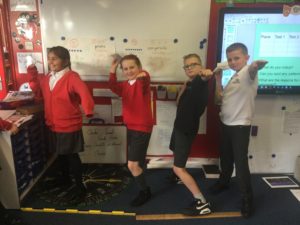
It was important to keep certain variables the same in order for it to be a fair test. We needed to know if it was the wing flaps affecting the distance travelled and not something else.
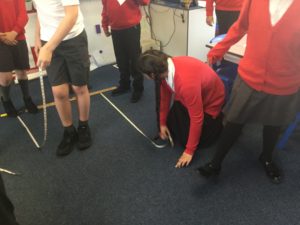
Tape measures were used in order to record each throw. We threw each plane three times to get an average distance.

We generally noticed that Plane 1 flew the furthest. Plane 2 always seemed to take a left hand curve and Plane 3 sometimes did a loop in the air. This led to our discussion about air resistance. The particles in the air were being blocked by the wing flaps, stopping the plane from cutting through the air and travelling as easily.
Imagine you have your hand out of the car window. What happens if you hold your palm up towards the sky? What happens if you hold your hand so the palm is facing the way you’re going? That is air resistance in action!
Our discussion led us to the following conclusion:
The greater the air resistance, the shorter the distance travelled.
Year 5 welcomed visitors from Leeds Beckett for one of two weekly PE sessions. Like last week, it was high energy and lots of fun!
Our two favourite activities this week were noughts and crosses…

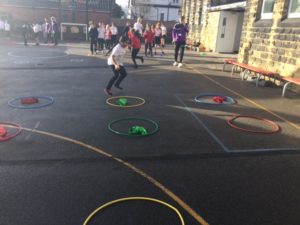
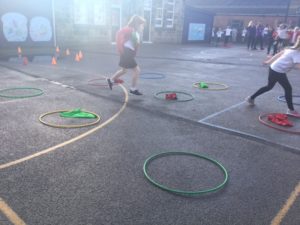
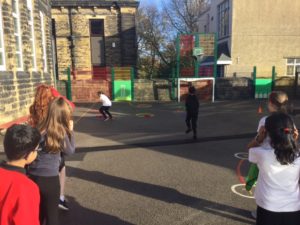

… and rock paper scissors! Two classic games mixed with a PE twist!
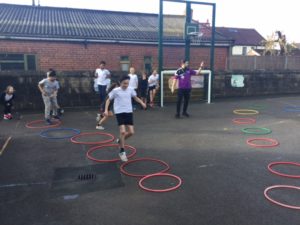
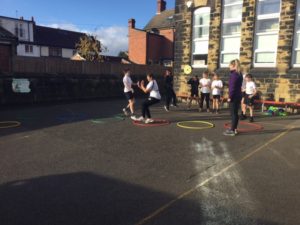
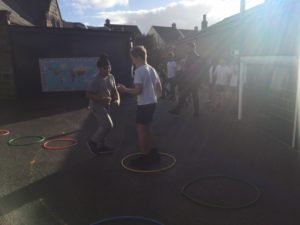
This half term, we’re focusing on moving in different ways, so this ticked all the boxes!
Did you know that Ada Lovelace, who was a British inventor, was the first person to invent the computer program? In her honour, Year 5 have enjoyed some offline computing today. We will learn more about Ada tomorrow.

They had six different stations, each with its unique brief. For example:
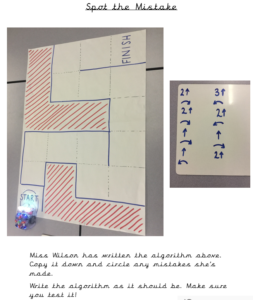
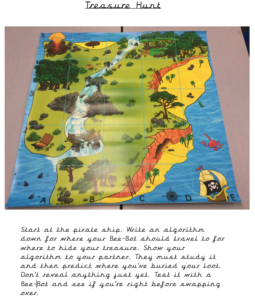
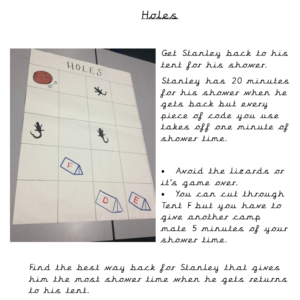
Children had to design algorithms to achieve a goal…
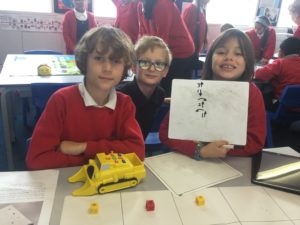
…such as collecting coins in – aptly named – ‘Coin Collect’ whilst avoiding traps…
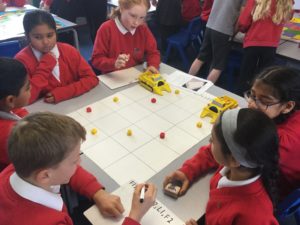
…or they had to debug an existing algorithm in ‘Spot the Mistake’. (Challenge your child to define debugging.)
It was frustrating and challenging at times.
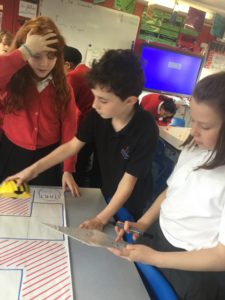
But when we succeeded, it felt great.
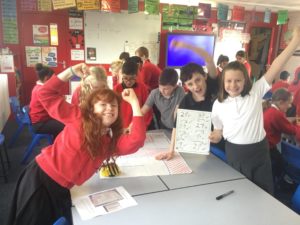
In ‘Treasure Hunt’, we wrote an algorithm to guide our Bee-Bot from the pirate ship to an area on the map to hide the loot. Our team mates had to predict which co-ordinates the algorithm would take the Bee-Bot to…
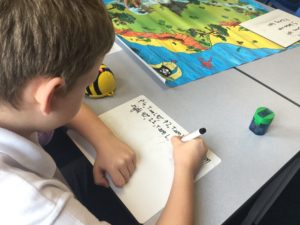
… and at station ‘ABCs’, we predicted spelling which word (using the Bee-Bot) would give the shortest and longest algorithm, explaining our reasoning for why we thought so. Of course, then we had to prove it.
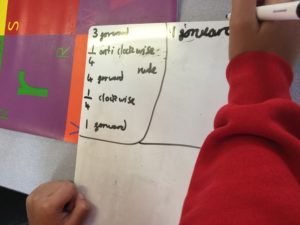
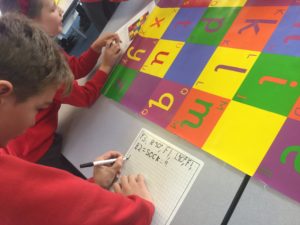
We also used logical reasoning to find the best route back for Stanley (from our class novel, Holes) to his tent for his shower – every piece of code used was in exchange for one minute of precious showering. Was it worth it to cut through Tent F and trade 5 minutes of tub time? It was important to avoid the lethal lizards!
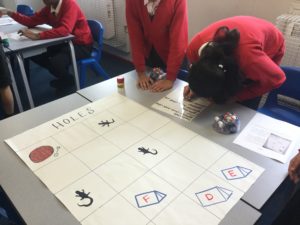
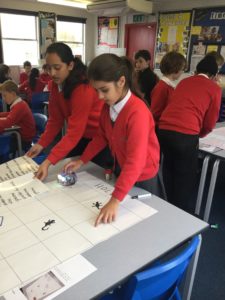
At the ‘Pocket Money’ station, we had to find the best routes for collecting different totals. A challenge was to show finding £2.54 in three different ways.
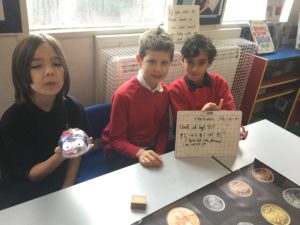
Well done to Year 5 for working brilliantly in their teams.